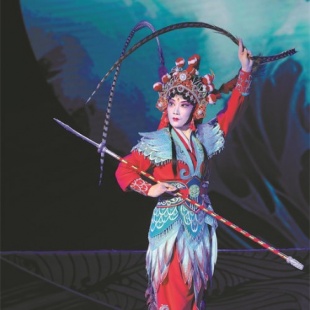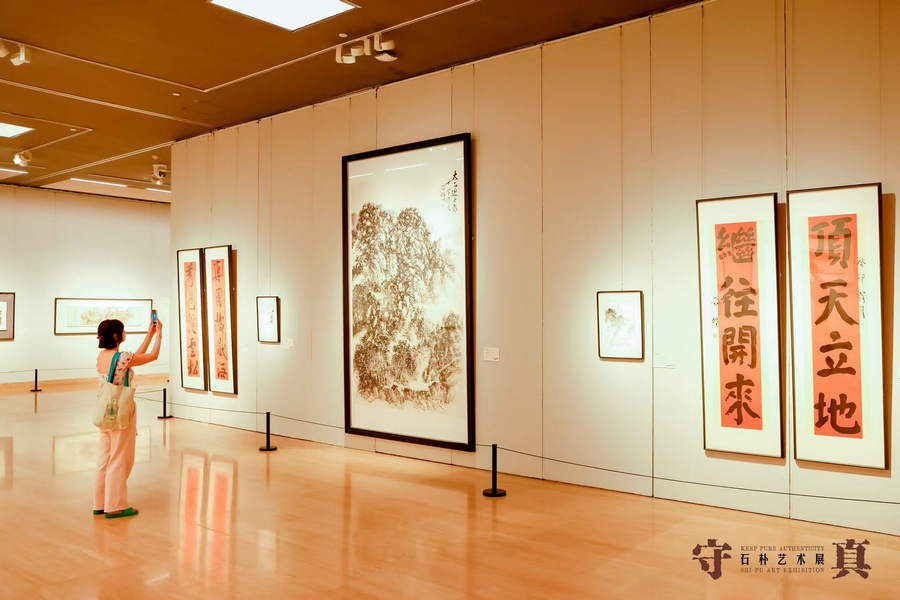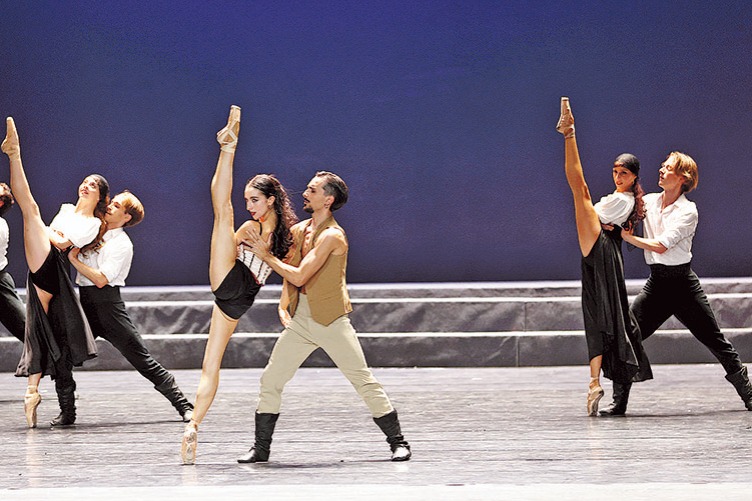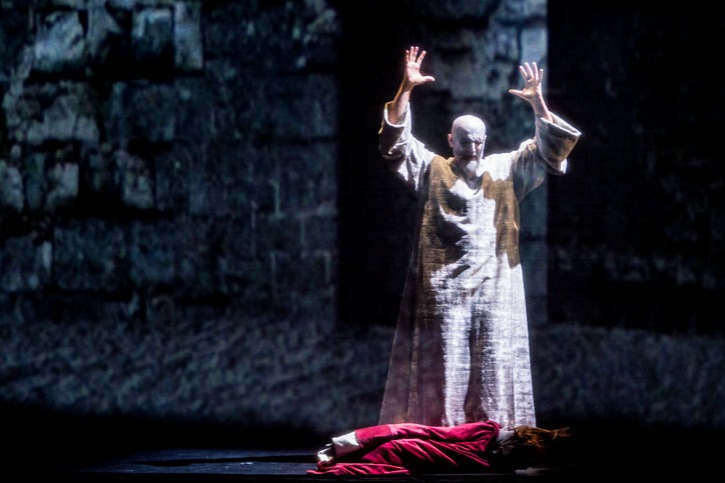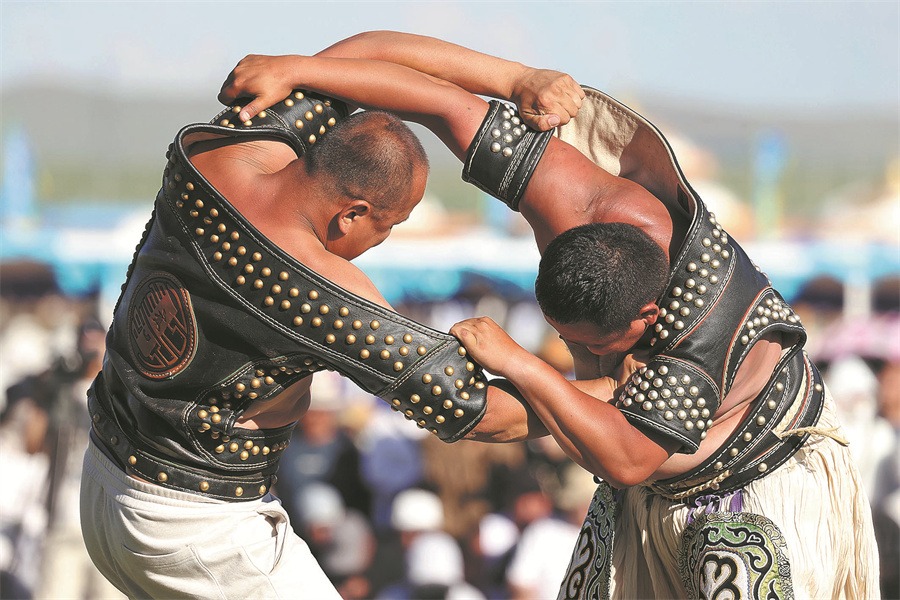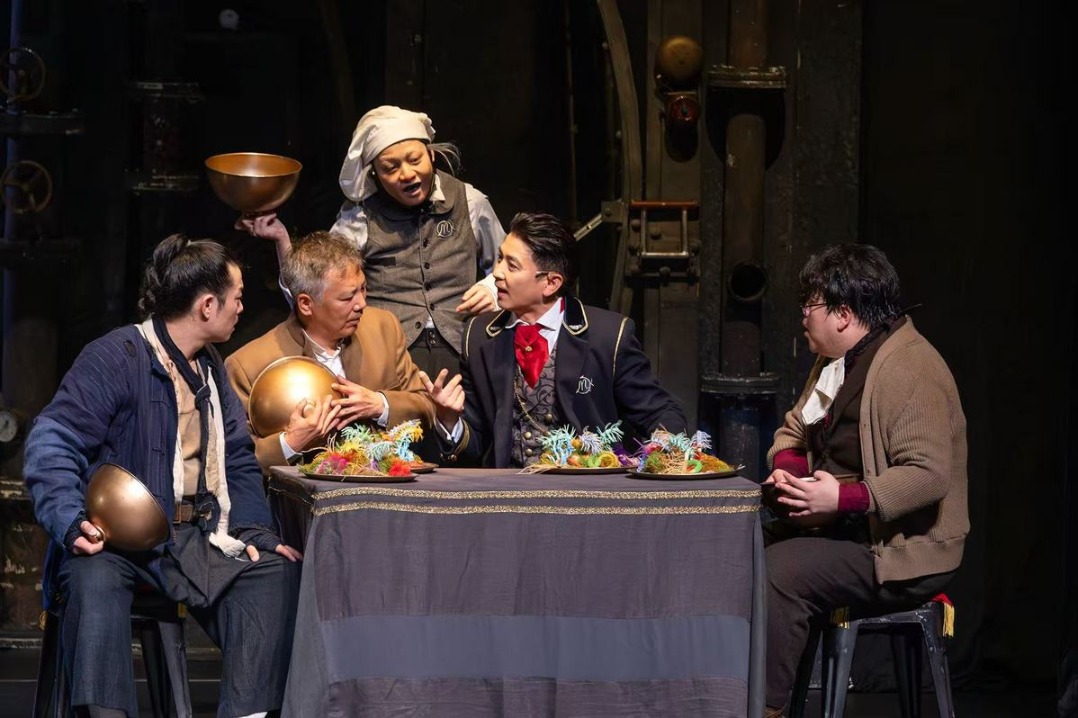Performer hits heights of excellence

Surrounded by veterans of the ancient art form Puju Opera, Liang Jing carries on a tradition that exhibits her multiple talents, which have been recognized by a prestigious award, Chen Nan reports.
Liang Jing was born in the historic city of Linfen, nestled in the heart of Shanxi province, a region rich in cultural traditions and a vibrant history. Linfen had long been a hub for Puju Opera, a local art form that flourished over 400 years. The city seemed to breathe with the powerful arias and intricate movements of this ancient art, its sound echoing through narrow alleyways and resonating in the hearts of its people.
From an early age, Liang was immersed in the world of Puju Opera. Her grandparents, passionate theater lovers, instilled in her a deep affection for the art. They frequently took her to the local theaters where she would sit wide-eyed and mesmerized by the dancers' skills and elegance, and the singers' powerful voices.
Her parents, too, were dedicated to the opera, and her aunt and uncle were performers in a local theater troupe, acting in the same plays her grandparents adored. Their home was always alive with the sound of rehearsals. Liang grew up surrounded by the music, emotions and soul of Puju Opera, absorbing its essence as if it were second nature.
By the time she was 12, Liang's passion for this ancient art was undeniable. Inspired by the performances she had seen and the stories she heard from her family, she decided to follow in their footsteps.
She enrolled in a local art school in Linfen, where she began formal training in Puju Opera. What started as a childhood fascination soon blossomed into a lifelong devotion. Liang's career progressed from small roles to more significant parts. Over the following two decades, she steadily earned the respect of both her peers and her audiences.
Her dedication was recognized in May when she received the prestigious China Plum Performance Award, one of the highest honors in traditional Chinese theater. The production that earned her the award was Jingwei Tian Hai (Jingwei Fills the Sea), a Puju Opera based on an ancient myth from Shan Hai Jing (Classic of Mountains and Seas), a revered text that chronicles various legends and geographical descriptions.
The story follows a beautiful young princess, beloved by her people for her intelligence, kindness and bravery, who tragically perishes in a sea accident. Her soul descends into the underworld, where she is reborn as Jingwei, a small, fiery bird with red feathers. Consumed by fury and a desire for vengeance, Jingwei resolves to fill the sea with stones to prevent the waves from claiming other lives. Every day, she carries tiny stones in her beak, dropping them into the vast ocean — an impossible task — but one she pursues with unwavering determination.

"My heart raced when the award was announced. In accepting this award, I dedicated it not only to the team behind the production but also to Jingwei, a symbol of unbreakable spirit and relentless resolve, and the ancient art form of Puju Opera," says Liang, 35, who portrayed Jingwei.
Puju Opera originated in Shanxi province, and is one of China's major regional operatic styles, though it is less internationally renowned than Peking Opera and Kunqu Opera. It is deeply influenced by other regional operas like Qinqiang Opera, one of the oldest forms of Chinese opera, particularly popular in northwestern China. Puju Opera music is dramatic and powerful, featuring high-pitched vocals, recitative-style dialogue, and traditional instruments, such as drums, string and wind.


